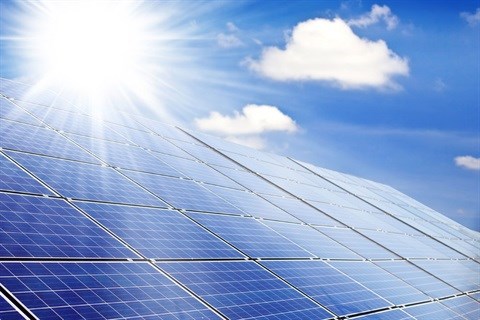Mustek Limited has donated four solar-powered water recycling toilets to Orefile Primary School in Olivenhoutbosch near Midrand in Gauteng.
"We wanted to do something besides putting solar panels on the roof for electricity, and after some investigation we came across this new technology for solar-powered toilets," Michael Cassidy, head of Renewable Energy at Mustek Limited, comments.
The school gained its green status because it was built using Razorbill's eco-friendly light weight steel frame solutions, as well as cementless concrete. It also makes use of a solar panel system for electricity and recycles the water that the learners use. "The addition of the solar-powered toilets is an achievement not just to us as a school, but also to us as South African citizens," Clever Shukwambani, principal of Orefile Primary School, says.
Three tanks
Housed in huts, the flushing toilets, combined with a self-recycling waste system, have been developed and manufactured locally by SMARTSAN. The SMARTSAN-N1 Sanitation System is made up of three tanks in one, which take up only a small footprint behind the flushing toilet. The first, outer tank houses anaerobic bacteria, which digest the waste material over ten days.
The second tank is a water medium for the flushed water to filter through, while the third tank contains a nano filter to further purify the water before it is re-used. This filtration process takes only a few seconds, and the water that re-appears in the toilet bowl is free of all dissolved contaminants and any harmful pathogens.
"The recycling of the toilet flush water means that waterborne sanitation is possible without a municipal water connection - you simply need an initial 1,500 litres of water to make the system work. The addition of solar panels to drive the water pump and filtration system also means that the toilets don't require an external power supply and are therefore completely self-sufficient and the most cost-effective sanitation solution," CEO of SMARTSAN, Jurgen Graupe, explains.
He adds that the amount of by-product is also significantly reduced - once dried, the solid content amounts to only 500g out of 300 litres of initial waste, and only needs to be removed from the system once a year.
Positive impact
The resulting positive environmental and social impact of this sanitation system makes it particularly important for the developing world and hard-to-reach areas. The brainchild behind the system, Prof Mulalo Doyoyo, comments that its water-saving potential is significant, with a household of five people only using 600 litres per year, compared to 32,000 litres on the sewer system.
Compared to mobile toilets, the maintenance requirements of the SMARTSAN system are very low, and the costs of dumping the waste in an environmentally friendly manner are negated. "We have addressed a real problem that exists in South Africa, and Mustek has helped to ensure that this innovation is put in place," he says. "My hope is to take this to the rest of the world because the same problem exists in other developing countries and we have found a solution."














































